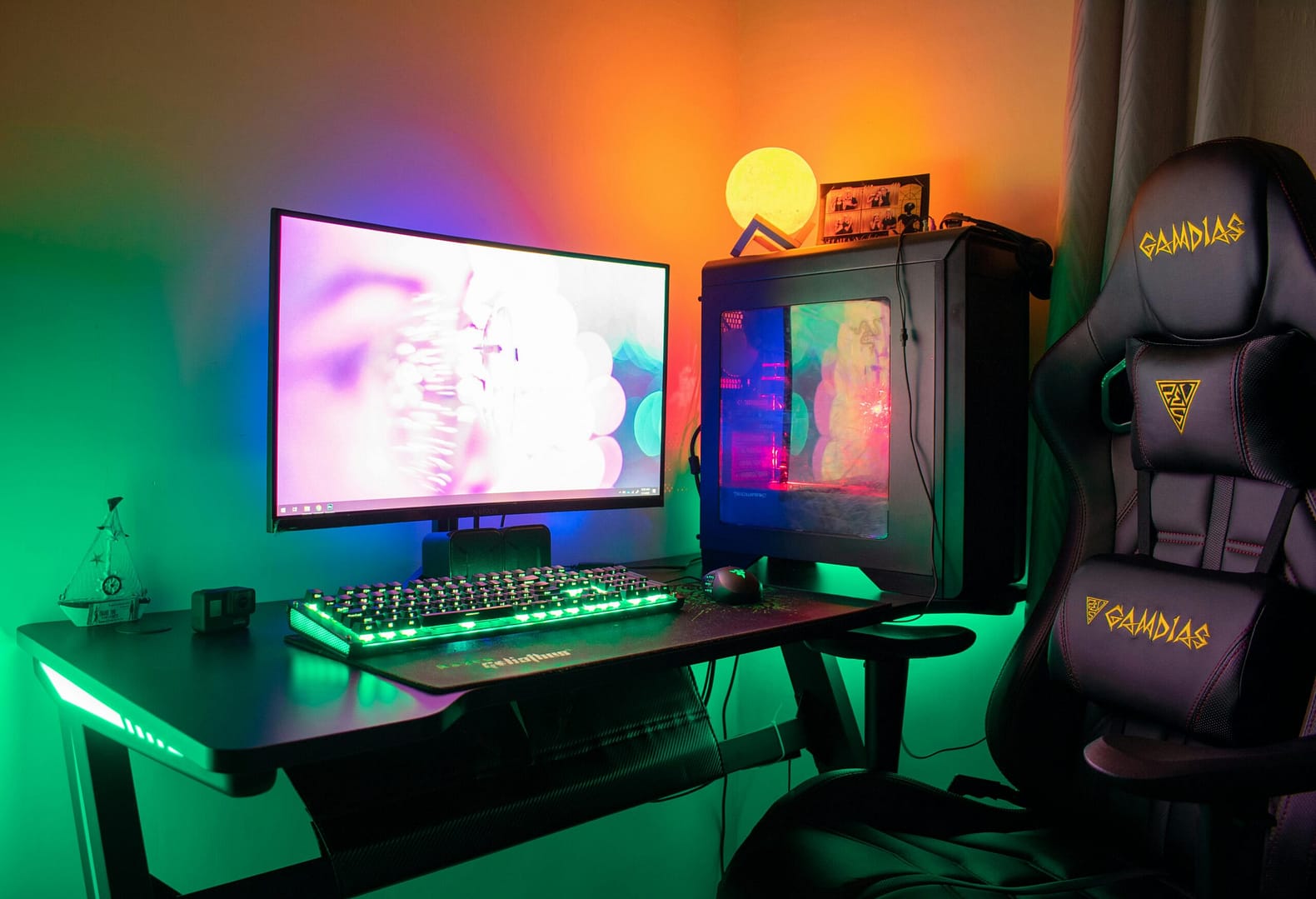Tips for Optimizing Your Gaming PC Setup
Gaming PCs are a significant investment for any serious gamer, offering unparalleled performance and customization. However, to truly get the most out of your gaming experience, it’s essential to optimize your setup. Here are some tips to help you achieve the best performance from your Gaming PC.
1. Keep Your System Cool
One of the most crucial aspects of maintaining your Gaming PC is managing its temperature. Overheating can cause performance issues and even damage your components.
- Regular Cleaning: Dust can accumulate in your PC case and components, hindering airflow and causing overheating. Regularly clean your PC with compressed air to keep it dust-free.
- Optimal Airflow: Ensure that your PC case has good airflow. This might mean adding extra fans or reconfiguring the placement of existing ones. A well-ventilated case can significantly lower the temperature of your components.
- Quality Thermal Paste: Applying high-quality thermal paste between your CPU and cooler can improve heat transfer, keeping your processor cooler.
2. Update Drivers and Software
Keeping your drivers and software up to date is essential for optimal performance.
- Graphics Card Drivers: Regularly update your graphics card drivers to benefit from the latest performance improvements and bug fixes.
- System Updates: Ensure your operating system and other essential software are up to date to maintain compatibility and security.
- Game Patches: Developers frequently release patches to improve game performance and fix bugs. Keep your games updated to enjoy a smoother gaming experience.
3. Optimize In-Game Settings
Adjusting your in-game settings can significantly impact performance.
- Resolution and Graphics Settings: Lowering the resolution and adjusting graphics settings such as texture quality, shadows, and anti-aliasing can improve frame rates without sacrificing too much visual quality.
- V-Sync and Frame Rate Limits: Enabling V-Sync can prevent screen tearing, while setting frame rate limits can ensure a stable gaming experience.
4. Upgrade Your Hardware
Sometimes, optimizing performance means upgrading your hardware.
- RAM: More RAM can improve multitasking and reduce loading times. Aim for at least 16GB for a smooth gaming experience.
- Storage: An SSD can significantly reduce load times and improve overall system responsiveness. Consider upgrading to a larger SSD if you find yourself running out of space.
- Graphics Card: If your current GPU is struggling with newer games, it might be time for an upgrade. Research the latest GPUs to find one that fits your budget and performance needs.
5. Customize Your Setup for Comfort
A comfortable gaming setup can enhance your overall experience.
- Ergonomic Chair: Invest in a good ergonomic chair to prevent back pain during long gaming sessions.
- Monitor Placement: Position your monitor at eye level and at a comfortable distance to reduce strain on your eyes and neck.
- Lighting: Proper lighting can reduce eye strain. Consider adding ambient lighting behind your monitor for a more immersive experience.
6. Utilize Performance Monitoring Tools
Monitoring your PC’s performance can help you identify and address issues.
- Software Tools: Use software like MSI Afterburner, HWMonitor, or Windows Task Manager to keep an eye on your system’s performance metrics such as temperature, CPU and GPU usage, and frame rates.
- Adjust Settings Accordingly: If you notice any bottlenecks or high temperatures, adjust your settings or hardware configuration to address the issue.
7. Secure Your PC
Keeping your Gaming PC secure is essential for protecting your data and maintaining performance.
- Antivirus Software: Use reliable antivirus software to protect against malware and other threats.
- Firewall: Ensure your firewall is enabled to prevent unauthorized access to your system.
- Regular Scans: Perform regular scans to detect and remove any malicious software.
8. Take Advantage of Bundles and Deals
Finding the right Gaming PC Bundle can save you money and provide a cohesive setup.
- Bundled Hardware: Look for deals that include essential components like the CPU, GPU, and RAM. These bundles often offer a discount compared to purchasing each item separately.
- Peripheral Bundles: Consider bundles that include peripherals like a mouse, keyboard, and headset. This can ensure compatibility and provide a unified aesthetic for your gaming setup.
9. Optimize Network Settings
A stable and fast internet connection is vital for online gaming.
- Wired Connection: Whenever possible, use a wired Ethernet connection for lower latency and more stable performance.
- Router Placement: Place your router in a central location and away from obstructions to ensure a strong signal throughout your home.
- Quality of Service (QoS): Enable QoS settings on your router to prioritize gaming traffic and reduce lag during online play.
10. Regular Maintenance
Regular maintenance can keep your Gaming PC running smoothly for years to come.
- Backup Data: Regularly back up your important data to prevent loss in case of hardware failure.
- System Cleanup: Use tools like CCleaner to remove unnecessary files and keep your system clutter-free.
- Hardware Checks: Periodically check and tighten connections within your PC to prevent any loose components.
By following these tips, you can ensure that your Gaming PC remains in top condition, providing you with the best possible gaming experience. Remember, optimization is an ongoing process, and staying informed about the latest advancements can help you keep your setup up to date.

Alex Hartman is a renowned expert in technology and product reviews. He is our contributor for Latest Tech & Gears! With over a decade of experience in the tech industry, Alex brings a keen eye for detail and a deep understanding of the latest innovations. Known for delivering insightful and thorough analyses, Alex’s reviews help consumers make informed decisions in a rapidly evolving digital landscape. When not testing the latest gadgets, Alex enjoys exploring advancements in AI and contributing to tech forums and publications.
